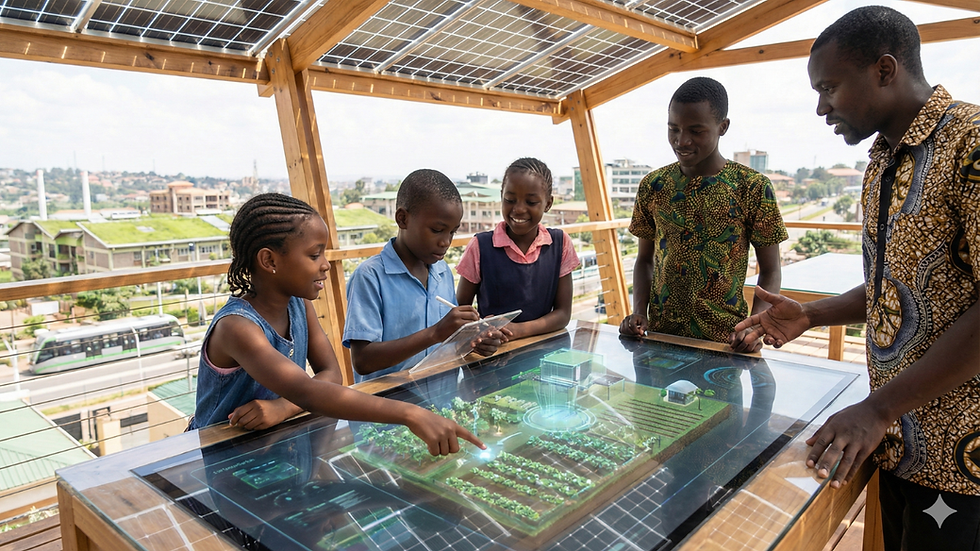Partnerships for Education Equity at UNGA 2025
- Editorial

- Sep 29, 2025
- 3 min read

As UNGA 80 enters its final day, education has once again taken centre stage. The agenda has been ambitious: accelerating progress on SDG 4, strengthening local education systems, and addressing persistent inequities with renewed urgency.
Throughout the week, world leaders and education actors have reviewed progress since the 2022 Transforming Education Summit (TES) and highlighted new strategies, including leveraging AI in classrooms and investing in early childhood learning. High-level discussions have also focused on foundational learning, youth skills, education in emergencies, and gender equality, all critical issues for shaping the future of education globally.
This moment calls us to celebrate progress, but also to reflect deeply: where do gaps remain, and what must partnerships do differently if education equity is to become a reality?
The Promise and the Blindspots
The priorities at UNGA 80 are timely and necessary:
AI and Education hold great promise for innovation, but risks deepening divides if access is unequal or teachers are underprepared.
Education in Emergencies has rightly been on the agenda, including a high-level roundtable this week, but without long-term commitments, crisis response too often remains reactive instead of building resilience.
Digital Learning for All has been pledged for years, yet many rural communities still lack infrastructure, trained teachers, or affordable devices.
Investment in Early Childhood Education has been reaffirmed, but risks being siloed unless linked to sustained pathways through primary and secondary schooling.
Teacher Training and Empowerment remain foundational, yet global financing often flows to hardware and platforms, not the human capital that drives learning.
Youth Skills and Gender Equality were central at UNGA 80 events, yet young people and girls are still too often invited as symbols, not as equal partners in shaping strategies.
These blind spots highlight a central tension: commitments are strong at the global stage, but equity lives or dies in the details of local implementation.
Lessons from Nigeria: Principles for Grounded Partnerships
From our work at GAMSU across Nigerian communities, a few lessons stand out that echo into the global conversation:
Equity begins with safe, inclusive environments. The most brilliant digital platform means little if girls cannot attend school safely or if children lack basic dignity in learning spaces.
Local voices are not “add-ons.” Community schools, grassroots educators, and youth leaders carry insights that should shape solutions from the ground up. Partnerships that only trickle down will not sustain equity.
Technology must complement, not replace. We’ve seen how coding classes and digital literacy spark innovation among underserved children — but only when paired with mentorship, trained teachers, and community support.
Education equity is holistic. From sports to innovation challenges, we’ve witnessed how non-traditional programs expand learning beyond classrooms, building skills and resilience that prepare children for the future.
These lessons are not Nigeria’s alone; they reflect realities across much of low- and middle-income countries. They remind us that the success of global strategies depends on local adaptation, ownership, and trust.
A Call to Action
As leaders close out UNGA 80, the call is clear: partnerships for education equity must go beyond rhetoric.
Invest in teachers as much as in technology.
Empower communities as partners, not beneficiaries.
Ensure youth voices shape policy, not just decorate events.
Prioritise resilience and dignity alongside innovation.
Education equity will not be achieved by declarations alone. It will be achieved when global commitments meet local realities, and when partnerships embody fairness, humility, and courage.
At GAMSU, we stand committed to building these kinds of partnerships, one school, one community, one child at a time.



Comments